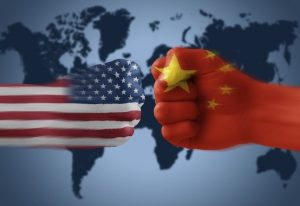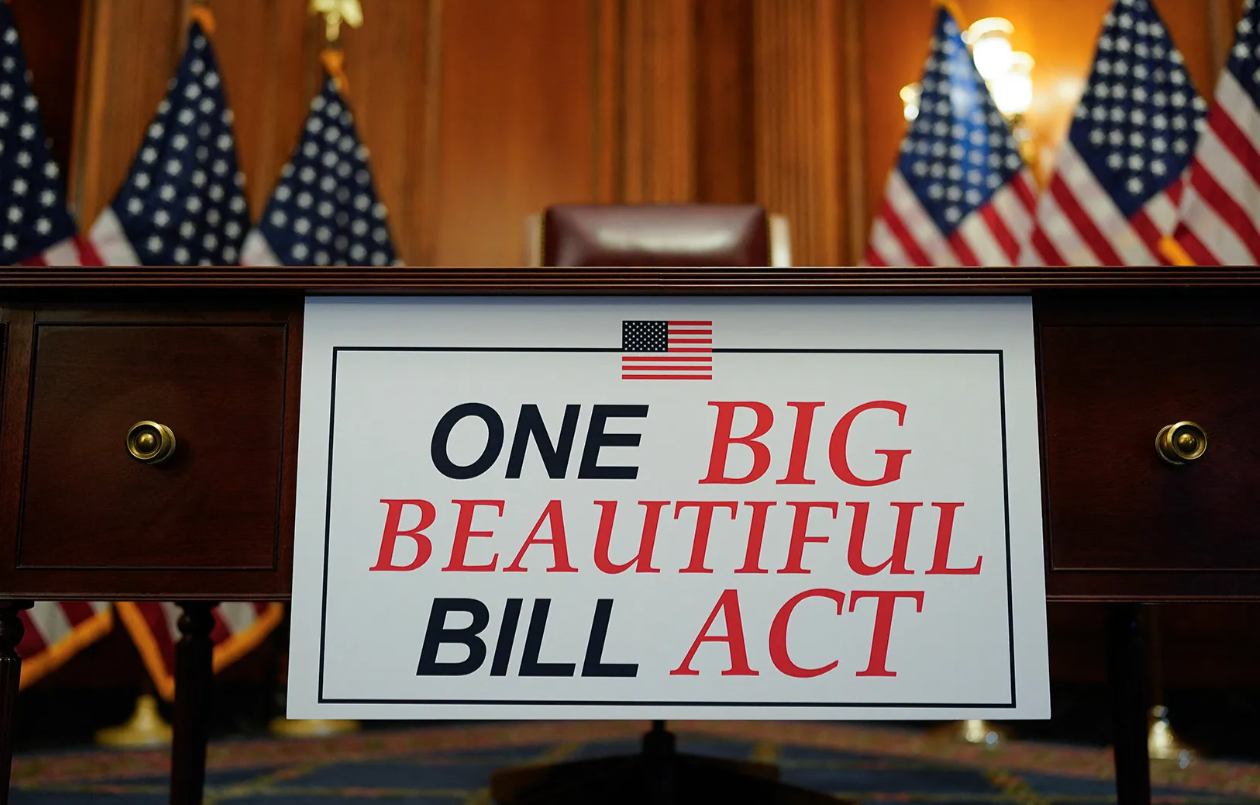(ThyBlackMan.com) (This article is an excerpt from “The Fix This Time,” by James Davis )
Exporting our consumer demand to low wage labor markets started in earnest with Japan and now has reached a critical stage with China. Why has this become such a major problem now? Japan, South Korea and the Philippines, to a great extent, represented the desired outcome, of the business model of shipping repetitive American jobs to low wage markets. South Korea has a population of 50 million people, Japan, 127 million and the Philippines, 101 million. During the period of time, when the United States was shipping America’s consumer demand to the above listed nations, their labor markets could only absorb a portion of that demand, leaving many labor intensive exportable jobs untouched in America.
However, when China joined the World Trade Organization in 2001 with its population of 1.4 billion people (the United States population is 324 million), it could absorb as many American jobs as businesses and corporations in America wanted to ship out. And shipped them out, they did. Thus, China became the world’s manufacturing floor, with its chief advantage being a country of low wages. Businesses and corporations looked at China, as they had previously looked at Japan, but in a much more grandiose way. China they felt, good become the largest generator of exports in the world, far exceeding Japan. Additionally, there was a massive consumer market of 1.4 billion Chinese consumers, American businesses and corporations wanted to tap into, also. It was simple; have the Chinese make everything cheaper and export it back to the United States.
So, thousands of American businesses and corporations established supply chains in China. They moved their factories overseas and shipped finished or near finished goods back to U. S. shores, to be sold in the United States. However, establishing this supply chain devastated and hollowed out American manufacturing in states like Pennsylvania, Wisconsin, Indiana, Ohio, Michigan, and other parts of the nation. Businesses and corporations had taken American consumer demand and exploited it in the worst way. They negotiated for themselves, forgetting the American worker.
The federal government did nothing to forestall this mass exodus of American jobs. One of the major negative aspects of this business model; when you move high paying jobs out of the U. S. is, you are essentially downsizing the community where these jobs were located. American businesses and corporations negotiated nothing in return for American workers. In other words, there was no reciprocal benefit negotiated. It became apparent the reason, corporations and businesses moved to China was so that they can up-size their income based on labor cost. While, corporations and businesses win in such a situation, this practice essentially leaves the community from which they are moving with a lower tax base.
There is a familiar story you hear and read about in regard to cities, towns and communities across this country, when a major manufacturing facility or an entire industry moves to a low wage country like China, India or Mexico. First, the unemployment rate in that city or town increases dramatically.
2) individual bankruptcies increase, as replacement jobs rarely match the income of the jobs being exported;
3) the real estate market shrinks as homes go into foreclosure.
4) the tax base of these cities and town erode depending upon the amount of taxes these companies were contributing to the tax base. This of course could affect the operations of the fire and police departments. Taxes from these companies depending again, on the size of the contribution to the community from which the business or corporation is leaving could also have an enormous effect upon community schools and infrastructure such as roads and public transportation.
5) the peripheral effect of a major business or corporation leaving a town or city will spread to other smaller businesses creating a ripple effect of closings and additional job lost and finally
6) an increase in crime could become a factor.
When a company or corporation decides that it can make more profit by moving a job to a cheaper labor market and ship near finished or finished products back to the United States, there are no jobs that are safe or off limit to this business model. So, the problem here, is not whether it is a manufacturing job, a computer job, or a green job, or what part of the country; it is the business model of seeking out low wage countries and how that business model is executed, that is the problem.
The exploitation of our consumer demand must be addressed. There must be more value attached to our consumer demand. Additionally, the United States federal government on behalf of American workers, has an obligation to be a better steward, when it comes to the unfair exploitation of that demand. It is obvious, looking at today’s current situation of low wage jobs, in the wake of high paying jobs being exported to China, United States businesses and corporations should not be the lead negotiators of our trade policies. However, during the Clinton, Bush and Obama administrations, the period encompassing China joining the World Trade Organization and operating as a trading nation with Western democracies, businesses and corporations largely dictated our trade policies.
The United States is a democracy and is the best place in the world to do business. Nevertheless, the objectives of many businesses and corporations and the better good of American workers are at loggerheads. Essentially, this is a problem created by the absence of federal government oversight, that is, the loss of jobs and income resulting from businesses and corporations closing factories in great numbers and moving those facilities to places like China, India, Mexico and other countries.
Corporations and businesses are doing nothing wrong by pursuing a profit for its investors and stockholders, when they move production to low wage countries. They were created by these investors for that purpose, to pursue a positive return on their investment. However, the federal government is tasked by the Constitution of the United States and the Declaration of Independence to pursue the better good for its citizens. Listen to these words from the Declaration of Independence and see if that is the case:
“We hold these truths to be self-evident, that all men are created equal, that they are endowed by their Creator with certain unalienable Rights, that among these are Life, Liberty and the pursuit of Happiness. — That to secure these rights, Governments are instituted among Men, deriving their just powers from the consent of the governed, — That whenever any Form of Government becomes destructive of these ends, it is the Right of the People to alter or to abolish it, and to institute new Government, laying its foundation on such principles and organizing its powers in such form, as to them shall seem most likely to effect their Safety and Happiness.”
With the above in mind, on which side should the federal government enter this disagreement? At the end of the day the federal government must operate in the best interest of the nation, as a whole.
However, keep in mind, there is nothing wrong with American businesses and corporations exporting good paying jobs to low wage labor markets in the pursuit of a profit. But, what the federal government can say and must say to those corporations and businesses, it is not in the best interest of the nation, that you export good paying American jobs created by the consumer demand of hard working Americans to countries, with which we have no reciprocal trade agreement.
You see, the problem is not so much with the business model, of the exportation of high paying jobs, to low wage labor markets; the problem lies with the federal government, not requiring reciprocity in trade from the countries to which American corporations and businesses export America’s consumer demand. The problem lies in trade policies and how those policies are executed. It matters not how big the American economy is and it is the largest economy in the world. However, if you continually drain the life blood of the American labor force, with unbalanced trade deals; not only with countries like China, but other countries as well, America will at some point cease to exist as a force in the world economy. The idea here, is not for the United States to cease trading with countries, with great populations of low wage earners, but there must be an insistence by the federal government the trading deals with these countries be balanced in a way that considers our interest, also.
The problem with the United States Commerce Department, that can be easily corrected, is it can give you a list of nations, like China and the European Union, who are not reciprocally trading with the United States, but it would be hard pressed to produce a list of countries that could become good reciprocal trading partners. Imports, based on the most recent trade data, with China totals, $540 billion. The United States exports to China is, only $120 billion. When it comes to the European Union (EU), the United States exports totaled $575 billion; Imports from the EU totaled $684 billion. You can readily see, balanced trading with these two trading partners could mean more good paying American jobs. The solution to these imbalances in trading with both these entities rest within our means to resolve.
In a perfect world, if a corporation or a business came to the U. S. Commerce Department and said it was considering having its products made in a low wage country, the U. S. Commerce Department would have a portfolio of low wage countries, with which the United States would have already negotiated reciprocal trade agreements for that business or corporation to peruse and consider. Operating in this manner, the United States develops leverage with huge labor markets of low wage earners like China, as China may not be among those countries in that portfolio. China, we know violates with impunity our intellectual, patent and copyright laws. Take this article for instance from the book, “The Fix This Time;” if a Chinese concern took this book and decided to print and sell it in China without the author’s permission, there is very little the United States or this author could do about it.
The weight of negotiating the direction this country will go, when it comes to trade rests in Washington D. C. and not with American businesses and corporations. The president and Congress must step up to their responsibility in this area. The United States, thus, would be giving notice to the world, businesses, and corporations of its intent to intervene, when it felt corporations and businesses within the United States, who exported America’s consumer demand to low wage countries, with which it had no reciprocal trade agreement, could be subjected to a border tax, when the finished and near finished goods are shipped back to the United States.
However, the parameters under which a border tax would be applied must be clear. If businesses and corporations do business with countries, that are not cleared by the federal government as reciprocal traders, the products of these concerns would be subjected to the border tax. Then the country is not the object of the border tax, as much as the corporation or business that refuses to adhere to the federal government’s policy of not exporting America’s consumer demand to non-reciprocal trading countries.
The objective of such a policy would be to create good wage paying jobs in the United States, while building deep trading relationships with countries around the world, who want to enter into balanced trade agreements with the United States. One must note, the United States is able to do this because it is the number one economy in the world. If it wants to stay number one, or among the top two largest economies, it must take action to stymie the flow of the exportation of its consumer demand to low wage countries; or manage this type of trading business in such a way, that it gets reciprocity for American workers. Otherwise, it will find itself not getting a fair return on consumer demand created within its borders.
When you look at the world’s population, China with a population of 1.4 billion people makes up 18 percent and India, with a population of 1.3 billion people makes up 17 percent of the world’s population of 7.7 billion people. These two countries want and need to develop a middle class. However, there is no reason why the United States has to destroy its middle class, to enhance theirs. More matured developed countries can continue to be prosperous, with good reciprocal trade agreements that enhance each others economies. The United States has to aggressively widen the number of countries it actively trades with in order to make the policy of reciprocal trading work. Africa has a population of 800,000 people, that is soon expected to reach 1 billion, is an area worthy of consideration, as it is composed of as many as 55 nations in various stages of economic development. The United States has proven its ability to advance nations economically using, American consumer demand.
As, United States taxes (tariffs) make Chinese imports more expensive, causing businesses and corporations to dismantle their supply chains in China and relocate them to other nations, it should prompt the U.S. Commerce Department to take a long term view of American trade. The federal government must become engaged in determining, where labor will be sourced, so as to enhance American job development.
While, China is not perceived by many as an enemy, it is certainly viewed as an adversary. Is it wise for American policy makers to embrace a world trading policy, using American consumer demand to advance the interest of an adversary (an authoritarian government with a leader for life); or is it wiser to pivot and advance the interest of young democracies in Africa, where there are no adversarial relationships? China represents a challenge to America when it comes to intellectual property theft, naval dominance in the South China Sea, military might in general, and in cyberspace.
The United States Commerce Department should do its due diligence and make sure its low wage reciprocal trading partners are prepared in terms of labor markets, skills and resources, so American corporations and businesses can make a move to African nations confidently. Therein lies an opportunity to export American education, values, business principles and know how to these new trading partners and build long term relationships.
The downside to corporations and businesses refusing to follow the reciprocal trade agreement policies is, they could see their finished or near finished products subjected to a border tax (tariffs). This amounts to getting down to the core of the problem. The United States government wants to make decisions, that are in the best interest of American workers, while at the same time freeing American corporations and businesses to make decisions, that are in the best interest of its stockholders and investors. Thus, it would be businesses and corporations, who would choose to incur tariffs on their near and finished goods being shipped from China, as the United States federal government through its Commerce Department nudges businesses and corporations to globalize beyond China to Africa.
Thus, in doing this, as stated above, the U.S. develops leverage in trade negotiations. This leverage is not only with China, but worldwide, because of our willingness, through the U.S. Commerce Department, to negotiate reciprocal trade agreements, which create jobs in the United States. America should never let businesses and corporations exploit our consumer demand in the manner that they have, which if left unchecked, would be to America’s detriment.
If we say China, as an authoritarian government, is indispensable to the success of Capitalism, then Capitalism, as an economic system, as we know it, is already doomed. There is no historical reference, I am aware of, where American Capitalism and entrepreneurship, as practiced in the United States, has coexisted successfully, with an authoritarian form of governance.
Staff Writer; James Davis
Mr. Davis is a leading expert and consultant in Financial Analysis and Social Dynamics. He is a graduate of Florida A. and M. University (FAMU), a former stockbroker, and a human rights activist who resides in Sanford, Florida. He was awarded the prestigious Governor Haydon Burns Scholarship to attend FAMU and while at FAMU was awarded the first Martin Luther King Scholarship. He is the author of three books, among them is “The Fix This Time,” Boost Your Retirement Income! Simultaneously Create Jobs and Spur Economic Growth (https://www.amazon.com/dp/B00MI3PD2M).
Mr. Davis can be reached through his blog @ https://thefixthistime.com.

















Leave a Reply